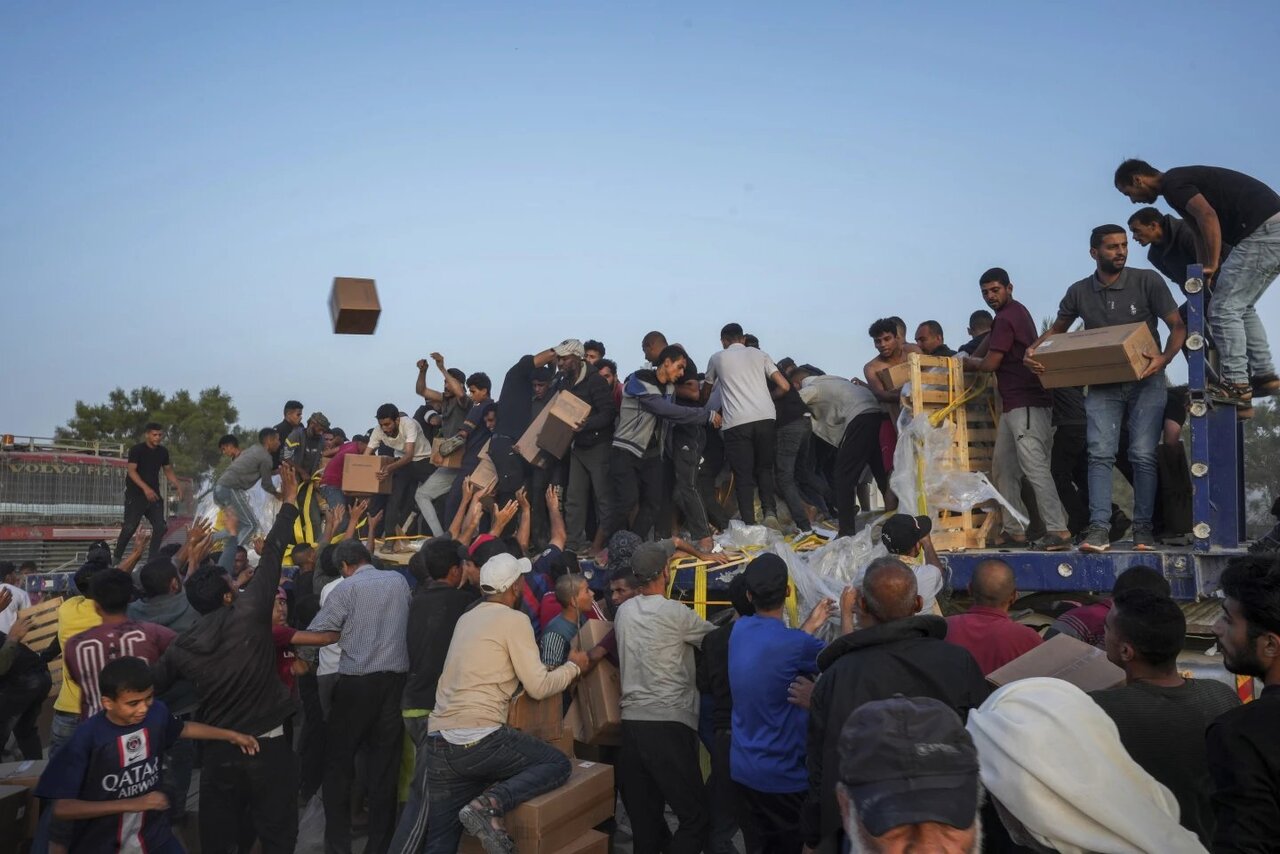On Tuesday, desperate Palestinians who were awaiting humanitarian aid were met by gunfire as Israeli troops opened fire at a crowd of people queuing to receive aid at Khan Younis, southern Gaza Strip. The Health Ministry in the Gaza Strip confirmed 51 deaths and an estimated number of injuries of about 200 in the occurrence of another sad chapter in the existing humanitarian crisis in the region.
The fatal event took place on the main eastern road of Khan Younis in where thousands of Palestinians had assembled in the hopes of obtaining the much-needed provisions. According to medical sources, Israeli tank crews fired multiple projectiles into the crowd of protesters, causing scenes of carnage that overwhelmed local medical care.
This caused overcrowding in Nasser Hospital, which then became the centre of the casualties, where the medical staff had no choice other to provide care to the wounded Palestinians in the hallways and even on the floors. At least twenty victims are in critical condition having further complicating the few medical facilities that are available in the besieged territory.
Palestinians who are trying to get humanitarian help have been a target in this line of disturbing events. A mere day before, Israeli forces killed 23 individuals in the area of a Gaza Humanitarian Foundation distribution center in Rafah, making it clear how dangerous the life of civilian men and women seeking to have access to necessities can be.
U.S.-supported Gaza Humanitarian Foundation has conducted four feeder sites across the territory. It distributed more than three million meals. However, the United Nations has lamented against this arrangement, citing that the operations of the foundation are against the norms of humanitarian law and constitute risky conditions for civilians.
The medical apparatus of Gaza is still collapsing under the pressure of constant casualties. Medical practitioners characterize the situation as the worst they have dealt with as they battle to attend to the rising cases of injured Palestinians with scant supplies and equipment. The frequent attacks on people who come to seek assistance have brought fear among the humanitarian community, and this makes it difficult to carry out humanitarian activities.
According to professional medical workers, a great number of wounded Palestinians are in severe condition and require surgical treatment; meanwhile, the medical system is not able to provide the necessary amount of medical care to treat severely injured people. This is a scenario that compels poor choices on patient priority and treatment intervention.
Gaza aid distribution attacks happen against a wider regional background that involves Iran and Israel. In response to Friday attacks by Israel, Iran’s revenge attempts have raised concerns of full-scale war spreading to the Palestinian ground. There are also some people living in Gaza who are optimistic that one day the intervention at the regional level could result in sustainable peace, and others fear that there will be more bloodshed.
Palestinian watchers cite the aid Iran has been offering to Hamas both militarily and financially in the current conflict. This support has established a complicated regional set of relations that have affected the course of the ongoing war and the avenues that it can follow to end it.
Cases in the International Court of Justice and the International Criminal Court have been launched on the perceived genocidal and criminal war acts associated with the military invasion of Gaza by Israel. Such legal delays put additional pressure on the international situation that is already volatile and involving millions of Palestinians.
Through mediation of the United States, Egypt, and Qatar, there has been cooperation to bend regarding crucial demands between the Israeli and Hamas leadership. The two factions keep accusing each other of not having successful ceasefire talks that would end the humanitarian crisis.


















